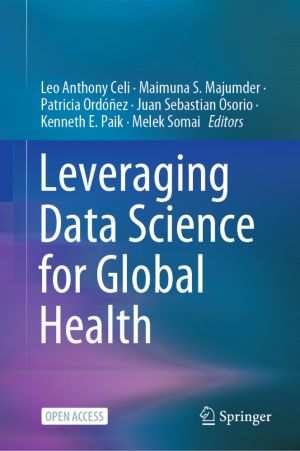Leveraging Data Science for Global Health
by Leo Anthony Celi, Maimuna S. Majumder, Patricia Ordóñez, Juan Sebastian Osorio, Kenneth E. Paik, Melek Somai
DescriptionDetailsHashtagsReport an issue







Book Description
This open book explores ways to leverage information technology and machine learning to combat disease and promote health, especially in resource-constrained settings. It focuses on digital disease surveillance through the application of machine learning to non-traditional data sources. Developing countries are uniquely prone to large-scale emerging infectious disease outbreaks due to disruption of ecosystems, civil unrest, and poor healthcare infrastructure – and without comprehensive surveillance, delays in outbreak identification, resource deployment, and case management can be catastrophic. In combination with context-informed analytics, students will learn how non-traditional digital disease data sources – including news media, social media, Google Trends, and Google Street View – can fill critical knowledge gaps and help inform on-the-ground decision-making when formal surveillance systems are insufficient.This open book is licensed under a Creative Commons License (CC BY). You can download Leveraging Data Science for Global Health ebook for free in PDF format (14.3 MB).
Book Details
Title
Leveraging Data Science for Global Health
Subject
Medical
Publisher
Springer
Published
2020
Pages
471
Edition
1
Language
English
ISBN13
9783030479930
ISBN10
3030479935
ISBN13 Digital
9783030479947
ISBN10 Digital
3030479943
PDF Size
14.3 MB
License

Related Books

This stimulating open access volume details the innovative work of the Pan Institution Network for Global Health in creating collaborative research-based answers to large-scale health issues. Equitable partnerships among member universities representing North America, Africa, Asia, and Europe reverse standard cross-national dynamics to develop loca...
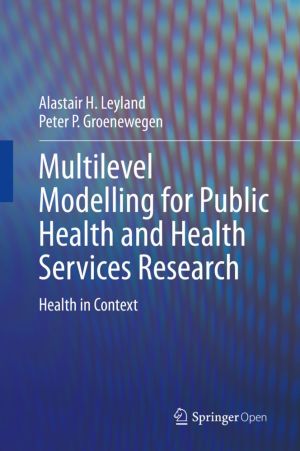
This book is a practical introduction to multilevel modelling or multilevel analysis (MLA) – a statistical technique being increasingly used in public health and health services research. The authors begin with a compelling argument for the importance of researchers in these fields having an understanding of MLA to be able to judge not only the g...

This engaging and clearly written textbook/reference provides a must-have introduction to the rapidly emerging interdisciplinary field of data science. It focuses on the principles fundamental to becoming a good data scientist and the key skills needed to build systems for collecting, analyzing, and interpreting data. The Data Science Design Manual...
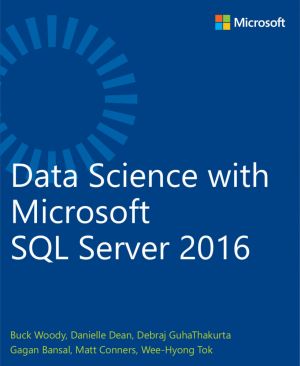
R is one of the most popular, powerful data analytics languages and environments in use by data scientists. Actionable business data is often stored in Relational Database Management Systems (RDBMS), and one of the most widely used RDBMS is Microsoft SQL Server. Much more than a database server, it's a rich ecostructure with advanced analytic ...
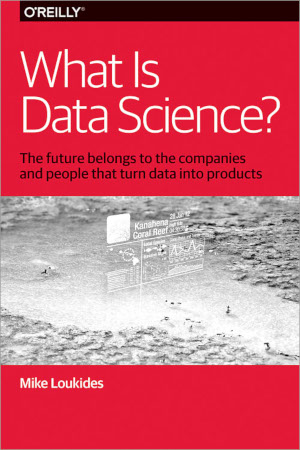
We've all heard it: according to Hal Varian, statistics is the next sexy job. Five years ago, in What is Web 2.0, Tim O'Reilly said that "data is the next Intel Inside." But what does that statement mean? Why do we suddenly care about statistics and about data? This report examines the many sides of data science - the technologi...
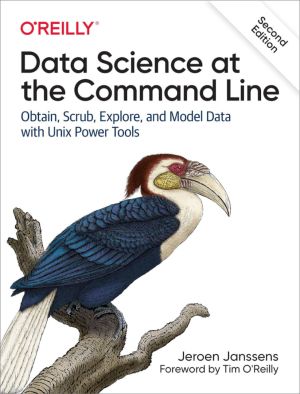
This thoroughly revised guide demonstrates how the flexibility of the command line can help you become a more efficient and productive data scientist. You'll learn how to combine small yet powerful command-line tools to quickly obtain, scrub, explore, and model your data. To get you started, author Jeroen Janssens provides a Docker image packe...

